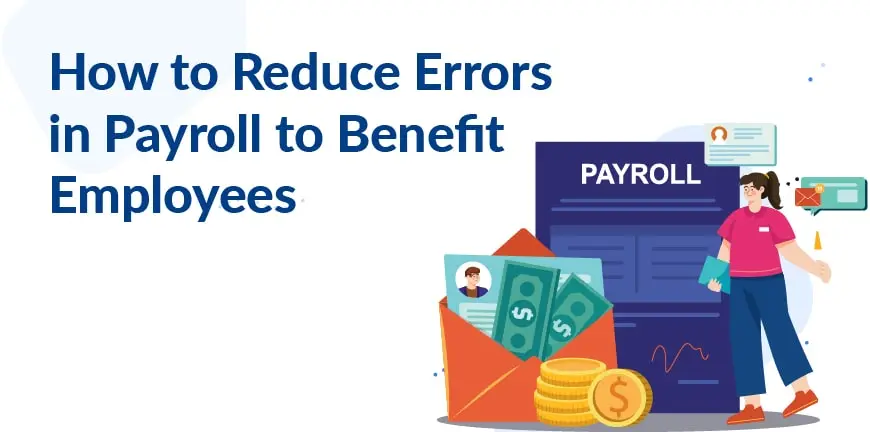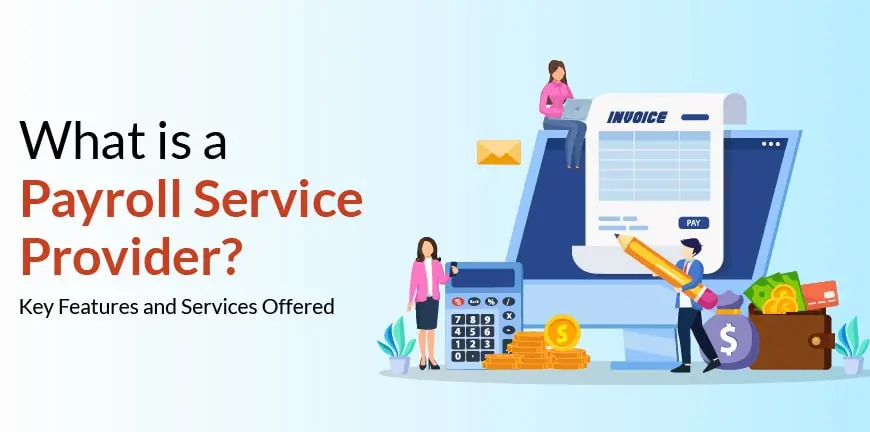
Top 10 Highest Paying Countries for Engineers
28/03/2024
6 Common Payroll Errors and How to Avoid Them
03/04/2024Payroll is a critical business function that needs a separate team, a well-defined group of stakeholders, its own objectives, and a clear vision of what it is to achieve in the long run. And as your company grows, and the number of employees increases, the number of sectors you are associated with proliferates, and the diversity in your company improves, the function of payroll also becomes more complex. You need a payroll services provider!
What Do Payroll Providers Do?
Payroll service providers handle all the tasks associated with payroll, right from defining a payroll policy to maintaining employee records to crediting the salary of each employee on time and accurately. Payroll services involve everything beginning with having a payroll policy to calculation, the credit of salaries and ending with compliance.
9 Key Features and Services Offered
Payroll outsourcing services partners help with several aspects of payroll, ranging from processing to reporting to compliance. If you want a list of things that are generally covered by a payroll agency in the services they provide, here they are.
1. Payroll processing
Manage the payments due to employees, including deferred payments, reimbursements, etc.
2. Payroll reporting
Manage payroll reporting and send updates to the concerned parties and stakeholders.
3. Compliance
Ensure that payroll standards are adhered to and that this is communicated to all employees.
4. Time tracking and attendance
Track the number of days employees were present for and the number of hours worked on those days.
5. New hire reporting
Assist in reporting any new hires to the state or central agencies, as is required by law, to keep track of the employment of all citizens in the country.
6. PTO management
Manage the paid time off of each employee by seeing how many leaves they have taken, how many are pending, and how they can make better use of them.
7. Manage tax deductions
Tax deductions need to be managed for each employee on the payroll. They need to be the correct amount and to be deducted at the right time.
8. Employee benefits
Manage the benefits that employees must get as per their employment contract with the company.
9. Manage Payroll Management System
The payroll management system is a software that is used for managing the payroll activities of a business. This will also be managed by the payroll service provider.
Integrating Payroll with Other Software and Business Processes
1. Integration with Time Tracking Software
HR needs to keep track of how many hours employees have worked to make sure that they have been productive and fulfilled their hours of login in organizations that mandate this. Similarly, the payroll team also needs to know the number of hours spent if the wages are hourly or if there is a minimum number of hours to be logged in each day. Integration with the time tracking software helps with this.
2. Integrating with HR software
HR software can keep track of compliance changes, changes in benefits awarded to employees, and their birthdays and anniversaries. Knowing these things can help payroll services providers accommodate any delays in payment or deferment of benefits. It can also help award any special benefits to employees on their birthdays or work anniversaries.
3. Integrating with Accounting Software
Integration with accounting software is another underappreciated benefit of payroll software. When this is established, the payroll transactions can be systematically moved to specific books in accounting, and the results can be checked, without directly adding them to any ledger at will. This keeps everything organized, and there is traceability too for every transaction in payroll.
4. Integrating with Other Enterprise Software
Integrating with other enterprise software is also possible, for instance, ERP. When this is done, any system that the ERP interfaces can access the payroll data, but only with the right authorization. What does this do? It speeds up the payroll by updating data in real-time across different departments, including changes made to payroll structure. Integration with an ERP also improves convenience and data security.
How Do Employers Choose a Payroll Provider?
So, you have been in the market to find a payroll agency after grappling with it ineffectively in-house. You may have just made the best decision ever for your business. Employers generally pick a payroll outsourcing services partner based on several aspects of the service they provide.
Some of these are costs, accuracy, the methods they use, and the support they provide. Looking for a more detailed look at how to choose a payroll provider. This blog describes the key considerations that you need to make when you are picking a payroll service provider.
Switching Payroll Providers
A payroll services provider is the only one managing your payroll, an activity that affects the business in its entirety. To ensure that your payroll agency is doing its job properly, just check if they satisfy all the requirements mentioned in the previous section. If they don’t, then you may look at switching to another payroll provider after weighing what conditions are most important for you.
Alp Consulting, an HR consulting services partner with over 25 years of experience, can help manage your payroll and the compliance associated with it. We will help you overcome any challenges you may face, regardless of the size of your company or what services it provides. Talk to us today to revolutionize your payroll.
Frequently Asked Questions
1. What is a payroll company?
A payroll company could have two definitions: one that provides a payroll management software, so effectively a payroll vendor, and second, one that provides an end-to-end payroll service. A payroll service provider could act as a payroll vendor as well.
2. What is a payroll service?
A payroll service helps manage one or more stages in a company’s payroll process effectively. It is generally administered by a third-party payroll partner and could make use of payroll management software.
3. What is the work of payroll?
The work of payroll is to ensure that employee salaries are credited on time, there is a process and stakeholders to manage it, and that it remains accurate and compliant, improving employee engagement and brand reputation.
4. What are the types of payroll?
The different types of payroll are in-house payroll, where the payroll is managed in-house by the business, payroll outsourcing, where certain aspects of the payroll are managed by a third party, but employees remain on the business’s payroll, or third-party payroll, where the employees are now on a third-party payroll.+
Contact Us For Business Enquiry

Yugandhara V. M
Yugandhara V. M serves as the Assistant Vice President – HRO at Alp Consulting Ltd., bringing over 14 years of rich experience in Human Resource Outsourcing, payroll management, and statutory compliance. He specializes in driving process excellence across HR operations, ensuring seamless service delivery and compliance with labor laws. Yugandhara’s expertise lies in managing large-scale client engagements, optimizing HR processes, and implementing efficient workforce management systems that enhance organizational performance. He also leads comprehensive payroll services, ensuring accuracy, timeliness, and compliance for diverse client portfolios.




